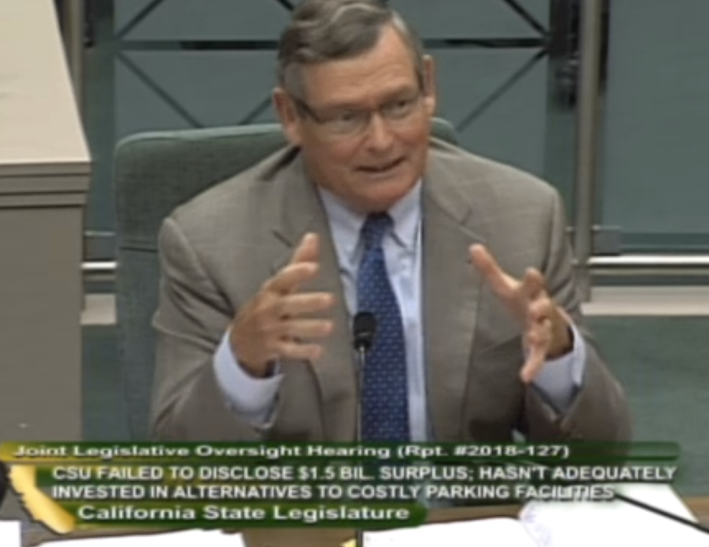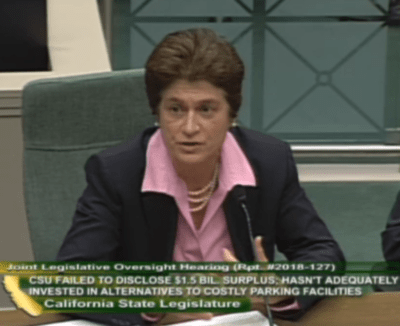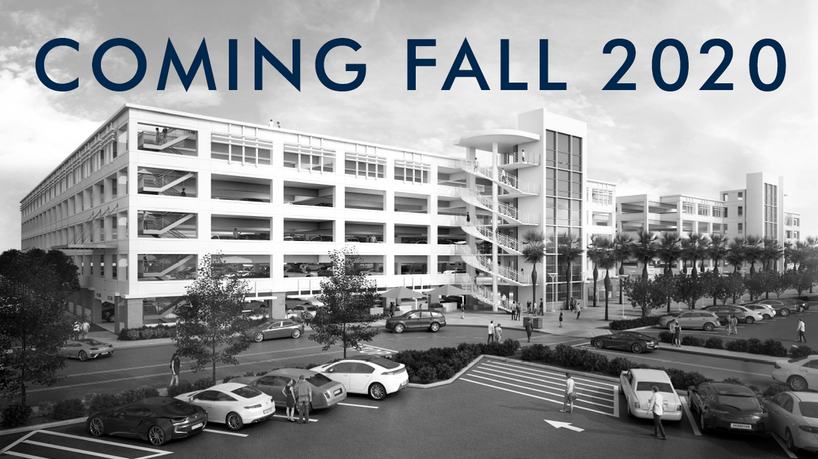A joint legislative committee met yesterday to hear the chancellor of the California State University system respond to a report by the state auditor charging that CSU had hidden $1.5 billion in reserves. The auditor found that CSU did not tell students or the legislature about the reserve when it was claiming that fees needed to be raised or programs cut. The report also found that CSU raised student parking fees to pay for new parking structures when it should have instead pursued alternatives.
Most of the hearing was spent going back and forth about whether the reserve funds were hidden or excessive. Timothy White, the CSU Chancellor, complained that the auditor's "sensationalist" report was amplified by the media, damaging CSU's reputation. "We have been open about this reserve," he said, later adding: "CSU did not and does not hide money."

He said the $1.5 billion had accumulated after the university system suffered extreme cuts during the recession, and that it was set aside to advance financial aid to students, to fund capital projects, and "to mitigate against an economic downturn."
A long line of angry CSU employees waited for hours to have their say, charging that they accepted pay cuts and years of deferred raises, and that students lost key services, because the university was not open about having the surplus and not willing to use it when it was needed.
In comparison, the subject of parking barely got attention. The auditor's report charged that CSU built expensive parking structures that have done little to solve parking scarcity problems, and raised student parking fees to pay for them. Student representative Grace Pang said that the high fees were a hardship for many students, who sometimes had to "choose between books and parking."
Of course, parking is expensive no matter who pays for it. But the audit highlighted that faculty and staff pay less for parking than students, and that was the focus of most of the parking discussion at the hearing. Senator Richard Roth (D-Riverside), a member of the joint committee, said that "one of the unintended consequences of the audit report was that it laid that out for us; that students, who are least able to pay, pay more than faculty. The impact of the parking fees is of concern to us, including inequities, because the cost of parking is probably a major part of a student's budget," he said.
The excuse for the difference has been that employee contracts limit fees for staff and faculty, but student fees can be raised at will. The auditor charged that students thus bear the burden of paying for new structures, where they may or may not even be able to find a spot to park.
While the inequity needs to be addressed, the problem goes much deeper. CSU administrators believe they must at least try to provide parking for every student, staff and faculty member who wants a permit, which is not possible. All campus community members would be better served if CSU worked to support alternatives via transportation demand management, including looking for ways to increase transit service, transit passes, carpooling, and helping make biking safer in the communities where the campuses are located.
As long as parking and driving are presumed to be necessary, they will be, and campus leaders are the ones who need to take this on.

State auditor Elaine Howle said that CSU administrators "need to do a better job identifying alternative ways for students to get to campus." Some campuses, she said, do a better job than others. She highlighted Sacramento State, which "really has done a pretty good job of looking at options. They collect data about their parking usage; they need to do a better job analyzing some of that data, but they have done a better job than some of the other campuses that we visited."
There are requirements for alternative transportation committees on each campus, she said, but not every campus has one, and not every campus has one that meets often.
She added that it wouldn't be easy, in part because the revenue available to support alternatives to driving "is somewhat limited. It's possible to use parking fines--from tickets for parking without a permit, for example--and, to the extent they have any parking revenue left over after debt and maintenance [of parking structures], they can use it for alternative transportation programs. Some campuses do have that excess revenue," she said, "but it's not a huge amount."
Her report included a series of detailed recommendations, which she did not go over at the hearing, except to say that the Chancellor's office needed to create more "robust" transportation plans, and needed to "look at alternative transportation, at what impact would it have, at how much it would help," she said. "They need to collect data, and they need to do a better job analyzing data, before they take the next step of building a [parking] facility."
Chancellor White did say that he and his colleagues "agree with the recommendations in the audit and will put them in place."






